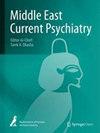Relation between body appreciation, eating disorder risk, emotional distress, and BMI among a group of Egyptian subjects
IF 1.6
Q3 PSYCHIATRY
引用次数: 0
Abstract
Body image appreciation is an important psychological aspect for all individuals of all ages which affects their psychological, personal, and social well-being. Examining the relationship between disordered eating tendencies, body appreciation, body mass index (BMI), and emotional distress among individuals who follow and seek psychological services from the non-profit entitative Egyptian eating disorders initiative EEDI and an online therapy platform. A cross-sectional study including 301 healthy participants with no past medical or psychiatric history was conducted. Participants completed an online survey including demographic data, BMI, and three measures: The Eating Attitudes Test (EAT-26), the Body Appreciation Scale (BAS), and the Depression Anxiety and Stress Scale (DASS-21) questionnaires. Participants with disordered eating tendencies — according to EAT-26 — had lower BAS scores (p < 0.001) and higher DASS depression, anxiety, and stress scores (p < 0.001). EAT-26 was negatively correlated with age (p = 0.003) and BAS (p < 0.001). Meanwhile, it was positively correlated with the three DASS scales (p < 0.001). BAS was negatively correlated with body mass index and the three DASS scales (p < 0.001). Body appreciation decreases with increased disordered eating tendencies and BMI. Depression, anxiety, and stress are associated with a decrease in body appreciation.一组埃及受试者的身体鉴赏力、饮食失调风险、情绪困扰和体重指数之间的关系
对所有年龄段的人来说,欣赏身体形象都是一个重要的心理方面,会影响他们的心理、个人和社会福祉。本研究探讨了在非营利性埃及饮食失调倡议组织(EEDI)和在线治疗平台上关注并寻求心理服务的人群中,饮食失调倾向、身体鉴赏力、体重指数(BMI)和情绪困扰之间的关系。这项横断面研究包括 301 名既往无病史或精神病史的健康参与者。参与者完成了一项在线调查,包括人口统计学数据、体重指数和三项测量:饮食态度测试 (EAT-26)、身体鉴赏量表 (BAS) 和抑郁焦虑与压力量表 (DASS-21) 问卷。根据 EAT-26 的结果,有饮食紊乱倾向的参与者的 BAS 分数较低(p < 0.001),DASS 抑郁、焦虑和压力分数较高(p < 0.001)。EAT-26 与年龄(p = 0.003)和 BAS(p < 0.001)呈负相关。同时,它与三个 DASS 量表呈正相关(p < 0.001)。BAS 与体重指数和三个 DASS 量表呈负相关(p < 0.001)。随着饮食失调倾向和体重指数的增加,身体鉴赏力也会下降。抑郁、焦虑和压力与身体鉴赏力下降有关。
本文章由计算机程序翻译,如有差异,请以英文原文为准。
求助全文
约1分钟内获得全文
求助全文
来源期刊

Middle East Current Psychiatry
Medicine-Psychiatry and Mental Health
CiteScore
3.00
自引率
0.00%
发文量
89
审稿时长
9 weeks
 求助内容:
求助内容: 应助结果提醒方式:
应助结果提醒方式:


